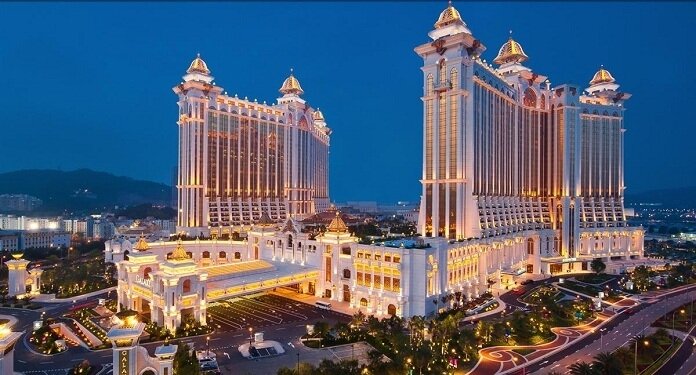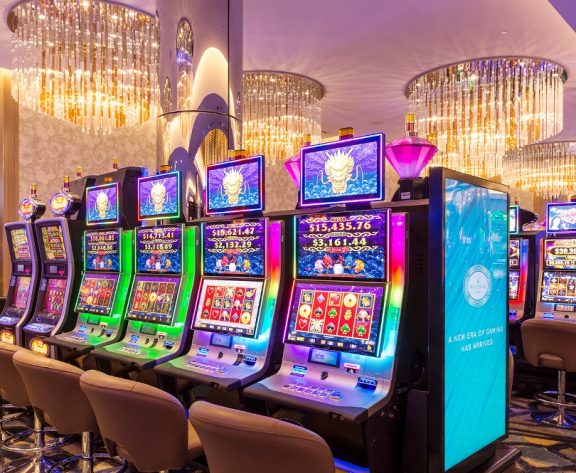- Macau needs Chinese gambling tourism
- Cut in junkets means Macau will seek tourists elsewhere
- Around 200,000 Americans visit Macau each year
4 Minute Read
Macau gambling tourism contributes 80% of the regional government's revenues
Macau casinos are to be given financial incentives to attract foreign players to their tables as the enclave seeks revenue streams from places other than China and Hong Kong.
Macau is the Las Vegas of east Asia but the region’s finances have been severely hit by the Covid-19 pandemic that has crushed profits over the past two years.
While Macau enjoyed a revenue boost back in February, further lockdowns across China have resulted in a growing strain on public finances, which are 80% funded by the casino industry.
Indeed, so concerned are officials of the special administrative region that they are looking at alternate tourism pathways to maintain their revenue streams.
What Is Macau Doing?
According to Bloomberg, Macau’s legislature is planning to pass a new gaming bill by the end of June, which will set out its intentions for the coming decade. Along with granting permits to its foreign-operated casinos such as Las Vegas Sands Corp. (NYSE:LVS) and Wynn Resorts (NasdaqGS:WYNN), the legislation will also detail tax breaks for casinos.
The tax breaks will amount to a 5% cut on gaming revenue tax for operators that succeed in bringing in players from outside of China. This is a big ask, with Chinese players accounting for as much as 91% of all tourists to the region.

Macau casinos will get a 5% revenue tax cut if they can attract foreign tourists other than Chinese
The tax cuts will certainly prove attractive to operators who already pay a 40% levee on gaming revenue. It is reported that the government is concerned about an over-reliance on Chinese players, especially as China cracks down on gaming junkets.
Satellite casinos will also be allowed to continue operating. The government initially proposed a ban on these casino types, where gambling is permitted in third-party premises, but that could now be dropped.
How Covid Hurt Macau Gambling Tourism Finances
Roughly four fifths of every dollar spent in Macau comes via the casino industry. The region is well placed to attract foreign players, with China banning casino gambling.
For years Macau has been a destination for Chinese players to gamble legally – and an entire junkets industry has flourished, where casinos and operators fly in players from Beijing, Shanghai and Guangzhou to test their luck on the tables. China is beginning to ban these junkets as the government is concerned about the billions of yuan flowing out of the country and into US-owed casinos.
Tourist gaming expenditure in Macau reached $44bn back in 2013. But since the Covid-19 pandemic the region’s earnings through gambling tourism has dropped significantly. In 2020 just $5.8bn was earned, and $10.6bn in 2021.
One of the biggest reasons for this hit was China’s struggle to contain the coronavirus. The world went into lockdown during most of 2020 but in 2021 there was more freedom of movement across the globe as vaccination programs took effect.
However, China is still waging a war on the virus. Further lockdowns during the ‘Zero Covid’ policy is hampering the economy – and few tourists are jetting out to chance their arm on the roulette, blackjack and poker tables of Macau.
It is no wonder, then, that the region’s administrators are seeking alternative revenue streams to Chinese tourists. Pre-pandemic figures show South Korea (812,000) and America (201,000) provide the most non-Chinese tourists to Macau each year. Millions more also visit via Hong Kong on day trips over overnight stays.
Whether Macau instigates a promotional drive to attract more foreign tourists, or simply leaves that to the casinos to deliver, remains to be seen. But the region is evidently keen to wean itself off the reliance of Chinese tourists.






